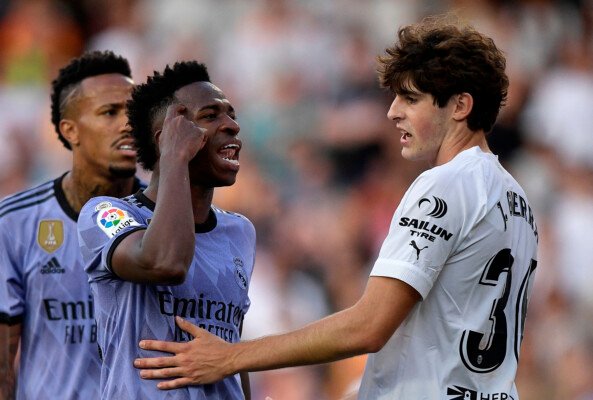Football, often dubbed “the beautiful game,” brings people from diverse backgrounds together in the spirit of competition and camaraderie. However, the shadow of racism continues to loom over the sport, tarnishing its reputation and perpetuating inequality. In this blog post, we address the challenges posed by racism in football, its far-reaching consequences, ongoing efforts for eradication, and the critical roles of players and authorities in creating a more inclusive and equal environment.
The Challenge of Racism in Football:
- Discrimination on and off the Field: Racism can manifest in various forms, from racial slurs and chants to discriminatory behavior off the pitch.
- Impact on Players: Racism takes a toll on players’ mental health, confidence, and well-being, affecting their performance and career prospects.
- Fan Behavior: Racist behavior from fans not only sullies the fan experience but also tarnishes the sport’s image.
Consequences and Reputational Damage:
- Negative Publicity: Incidents of racism garner negative media coverage, damaging the reputation of clubs, leagues, and the sport as a whole.
- Player Response: Players subjected to racial abuse often face difficult decisions regarding their career paths and overall involvement in the sport.
Ongoing Eradication Efforts:
- Awareness Campaigns: Football organizations launch campaigns to raise awareness about racism’s negative impact and promote tolerance.
- Diversity and Inclusion Initiatives: Clubs and leagues implement diversity and inclusion programs to foster an inclusive culture within the sport.
The Role of Players: Taking a Stand
- Voicing Concerns: Players are using their platforms to speak out against racism, lending their voices to the call for change.
- Unity Displays: Players and teams show solidarity by taking a knee or engaging in other unity gestures before matches.
Authorities and Accountability:
- Strict Penalties: Football governing bodies impose heavy fines, match bans, and point deductions for clubs and fans engaging in racist behavior.
- Education and Training: Football associations offer educational programs to increase awareness and sensitivity.
Steps Toward Inclusivity and Equality:
- Policy Implementation: Stricter anti-racism policies are required, along with swift and consistent enforcement.
- Educational Initiatives: Schools, clubs, and communities must educate the younger generation about the importance of equality and respect.
- Community Engagement: Collaborative efforts with fans and grassroots organizations can drive cultural change within football.
Conclusion
The fight against football racism is a shared responsibility that requires the commitment of players, fans, authorities, and the wider society. Therefore, by addressing this issue head-on, raising awareness, and fostering an environment of inclusivity and equality. Also we can work together to create a football community that celebrates diversity and respects every individual’s right to enjoy the game without fear of discrimination. As we strive for a future where football truly embodies its nickname as the “beautiful game,” let us remember that eliminating racism is an integral part of achieving that beauty.

